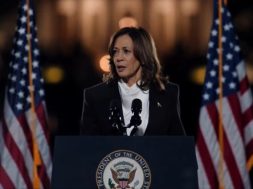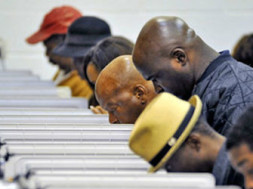
Monday Musings on Racial Gerrymandering under the Voting Rights Act/John Edwards’ Indictment in Federal Court

Tucker’s opinion—which I fully share—is that majority-minority districts, originally drawn to increase black representation in Congress, ultimately weakens black political influence.
This not only holds true in federal races, but also on the state and local level where candidates who are not compelled to solicit minority votes, quite frankly, don’t.
At the time this rule was added to the Voting Rights Act in 1982, there were only 18 black members of Congress. Today, there are over 40 black members of Congress. Included within this number are Representatives Tim, Scott, (R-S.C.) and Allen West, (R-Fla) both of whom were swept into office as Tea Party members.
The very fact that Scott and West were elected in non-minority districts is evidence that one of the original concerns of the 1982 legislation—that black candidates only win in “safe” districts, is debunked. Not that Scott and West were the first, as Georgia Representative Sanford Bishop has served a mostly rural and white Democrat constituency for the past 18 years.
Add to that President Obama’s success among white and Latino voters in 2008, and it is clear that the argument that whites are incapable of voting for black candidates no longer holds true.
Despite these facts, there are some black incumbents who disagree with eradicating majority-minority districts for the obvious reason—fear that their brand of politics lacks cross-racial appeal. This, perhaps, serves as one of the primary reasons I support eliminating majority-minority districts in that it should lead to more candidates who understand that policy—not poverty pimping—is critical for crossover electoral appeal.
In addition to fearful black incumbents in these districts, there are some Republicans who gladly support the oddly shaped majority-minority districts as long as it means that their power is not diluted.
This is mostly felt in states like Florida where GOP incumbents are not compelled to show how their policies will impact minorities when they face only token Democrat or independent opposition in general elections.
In summary, the best way to create accountability from elected officials is to eliminate the false notion that racial or ideological loyalty trumps the election of candidates or the implementation of policies that impact us all.
FORMER PRESIDENTIAL CANDIDATE JOHN EDWARDS INDICTED
When news broke of John Edwards’ indictment last week, my initial concern was whether he was being prosecuted because of campaign finance laws that, curiously, have led to few convictions over the past 10 years, or whether he is being charged because of the messy nature of his affair with Rielle Hunter, one that led to the birth of a daughter during a time in which Edwards’ wife, Elizabeth, was suffering from the very Cancer that claimed her life last year.
If it is the former, that Edwards violated campaign finance laws, then it is worth noting that prosecutors ultimately will have to convince jurors that Edwards intended to disobey such laws for his own personal benefit.
At this point there are more questions than answers, including the fact that Edwards, a millionaire trial lawyer long before winning a US Senate seat in 1996, surely had enough money to pay Hunter off if such was his goal.
Assuming that Edwards’ campaign staff was responsible for noting what monies were raised and how they were spent, the clearly implied defense is that Edwards, who was singularly focused on winning the race, had no clue as to where the money was going. Clouding definitive proof on this issue is the fact that Edwards’ campaign finance manager, Fred Baron, is dead.
One of the quirks in federal prosecutions is that it may be some time before the Edwards defense team knows who the government plans to call as witnesses and what promises—if any—they have received for their cooperation.
Still, some experts are already predicting that on campaign finance laws alone, that Edwards stands a great chance of being acquitted.
Michael Toner, a former Federal Election Commission chairman recently said, “Here I am a conservative Republican, I’m no fan of John Edwards — but I really think this indictment is a stretch under the federal elections laws.”
Attorney Jan Baran, who specializes in campaign finance law and also is a Republican, suggested that “It’s a lot easier to get a conviction when there’s an odor of a quid pro quo for illegal contributions.” Baran added “Where there’s not something like that, I think it’s a little harder for the government to explain what the inherent evil is.”
Baran is right, unless the prosecutors subtle intention is to prove the theory of its case not through overwhelming facts, but through the emotional value that evidence of Edwards’ tawdry affair could have on a jury that may have difficulty understanding the 19-page indictment, but who may convict because they find Edwards’ personal conduct reprehensible.







